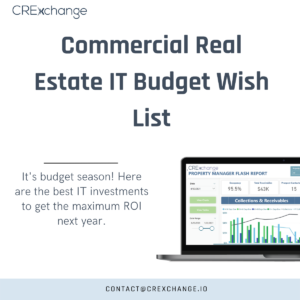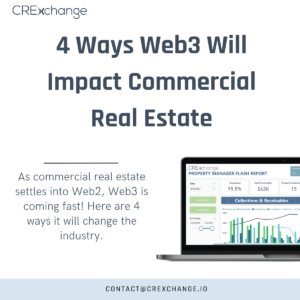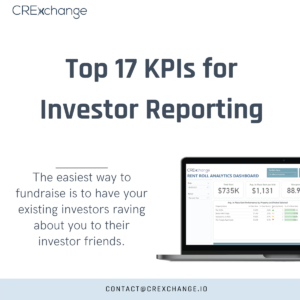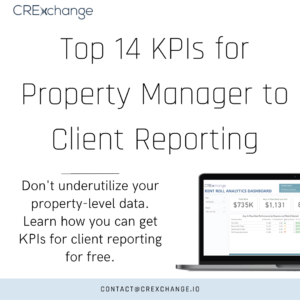
Data is the New Oil
“Data is the new oil.”
If you haven’t heard the tagline “data is the new oil” yet, google it. Technologists have espoused this theory for years. Commercial real estate data is like oil before we understood its value and clamored for ownership. It’s sitting on the surface of the earth, unused and unclaimed. In the same way the invention of the kerosene lamp created the first significant demand for petroleum in the U.S., a new invention and use for commercial real estate data will create a rush to the courtroom for prospective owners claiming their stake.
Oil and Gas Rights
I used to work in oil and gas. When I hear “data is the new oil,” my palms begin to sweat, my heart starts racing, and each breath feels shorter than the last. Alright, I may be a tad dramatic, but if you audited oil and gas rights, you’d feel the onset of a panic attack too.
Here’s a brief primer on how oil and gas ownership works. You may profit from an oil well in many different ways. For example, you could be a landowner leasing the land, or you could own net royalty interests, working interests, or overriding royalty interests to name a few. You may bequeath rights to your chosen heirs, creating more complexity in the ownership structure. This results in a massive amount of precise calculations to determine each owner’s profits (and expenses, if applicable). As an auditor, I had the mind-numbing task of tying out these calculations to ownership documents.
We haven’t had the oil – I mean data – rush yet, but it is inevitable. To prepare, let’s translate oil and gas ownership rights to commercial real estate data rights. Specifically, let’s focus on the data generated by property management software. First, we’ll cover ownership issues. Then, we’ll cover why the “data rush” hasn’t happened… yet.
Who Owns Commercial Real Estate Data?
Let’s understand the potential owners.
-
- Software Application Vendors
-
- Property Managers
-
- Owners
-
- Investors
Software Application Vendors
Yardi, RealPage, MRI, Appfolio, etc. create ways to capture and store commercial real estate data. Theoretically, they host their customers’ data so they could own it, right? Not so fast. Their software agreements state that the software licensee owns the data they submit to their software. However, tenants (i.e. residents in an apartment building) may claim certain data as their own too. The software provider often claims the right to aggregate data and create derivative works, which the software provider owns. In other words, the individual data points (unless claimed by tenants) belong to the licensee of the software: the property manager.
Property Managers
As the software licensee, property managers appear to be owners of this data. Problem solved!
Wait… what about the property owner?
Owners
Instinctually, property owners should be the legal owners of their properties’ data. In the same way, we probably once thought that if you owned land, you owned everything beneath it. Oil and gas rights certainly don’t work this way, and currently, neither do commercial real estate data rights. Most property management agreements with institutional owners require financial and basic operations reporting monthly, quarterly and annually. However, most agreements do not explicitly require that all data be given to the property owner. Data not included in reporting may be demographic information on tenants that may be used for investment decisions, or work order details that may indicate more systemic problems at a property.
Let’s imagine that we’re living in the early 1800s digging for coal. We dig deep into our coal mine and find all this gooey, murky sludge. Because we don’t know what to do with this sludgy seepage later known as oil, we leave it and move on, searching for more coal.
Property owners are like these coal miners. They have access to some of their data and may own it if they were to claim it. However, most don’t understand how it could be useful (not to mention insanely profitable!) for themselves or others, so they abandon it and move on.
Investors
Now, this is where ownership complexity could set in. If commercial real estate owners were to claim a stake in their property data, would their investors also be owners of this data? If the owners profited from the sale of this data, how would they distribute those earnings to investors? Similar to owners, investors often require certain reporting, typically on a quarterly and annual basis. However, investor agreements fail to address ownership and profits from property data. Once again, investors are much like coal miners who see a small piece of oil, don’t have a mechanism to profit from it, and move on.
Where Is the CRE Data Rush?
Hold your shovels and buckets. There’s no digging to be done just yet. An invention must come along that demonstrates a valuable use case to owners for this data. Here are a few ways managers and owners could monetize their data.
-
- Make Money Collecting Data. Property managers, brokers, etc. could get paid more for collecting better data as part of their contracts with owners.
-
- Make Money When Others Use Your Data. Owners of real estate should have digital rights to the data produced by their properties. Think of this in the same way that NFTs grant ownership of digital images. Better yet, in the same vein of individual rights per GDPR, why don’t owners have rights to the data that their firms produce? Any group using that data should have to pay a fee to do so – unless of course, they’re the software helping you collect that data.
-
- Make Money Selling Your Data. Once you own the digital rights to your data, then you will have the ability to sell it in aggregate or piecemeal.
-
- Make or Save Money by Improving Your Investment or Management Strategy with Data. This is far and away where people have focused most of their time and effort today. I talk about how we address this at CREx below.
How to Make Money with your CRE Data Today
At CRExchange, we built CREx Software to help commercial real estate firms monetize their data. We not only automate data collection – saving our customers time and money – but also provide insightful analytics. Our insights help customers to identify unseen risks and take advantage of opportunities early. Further, our property managers benefit from the process improvements we recommend through our ongoing data quality audits. Our property managers may also profit from their improved data capture. Finally, we help enhance reporting to our customers’ clients and investors, improving their sales and fundraising.
CRE Data is the New Oil Conclusion
There will be an invention that allows managers and owners (and investors, if they choose to join the party) of real estate to profit from the data generated by their properties. CRE data is the new oil. And when you need “drilling and refinery equipment” for that oil, feel free to reach out.






